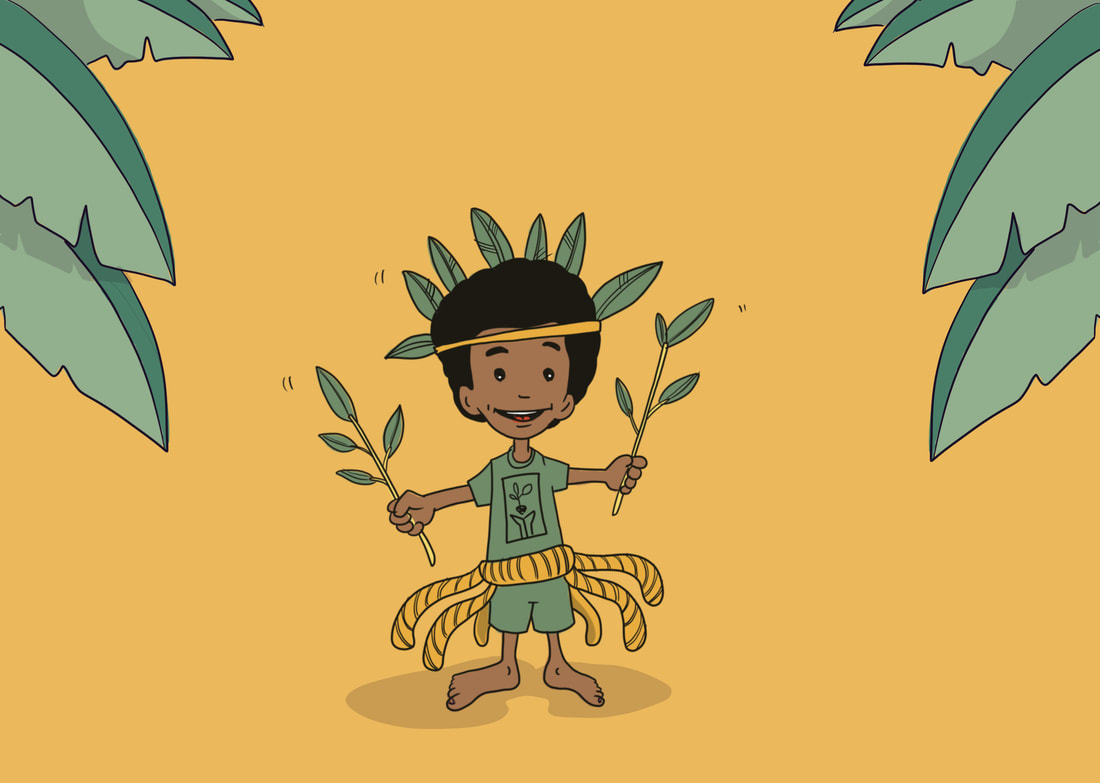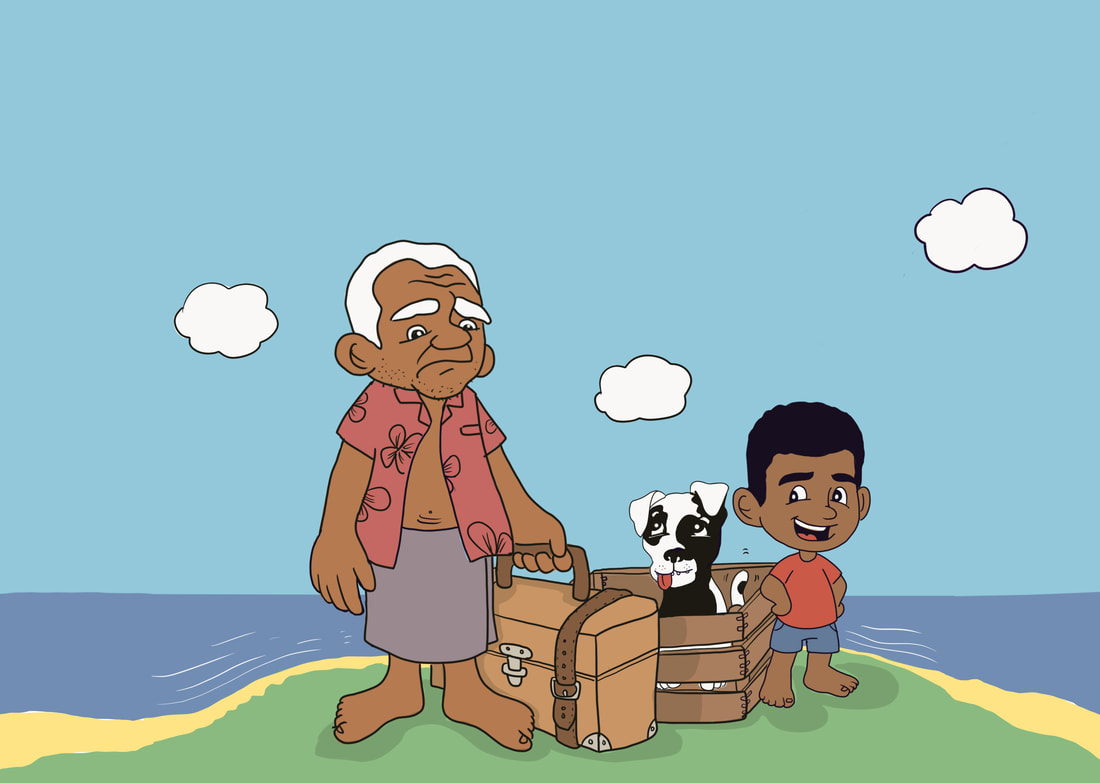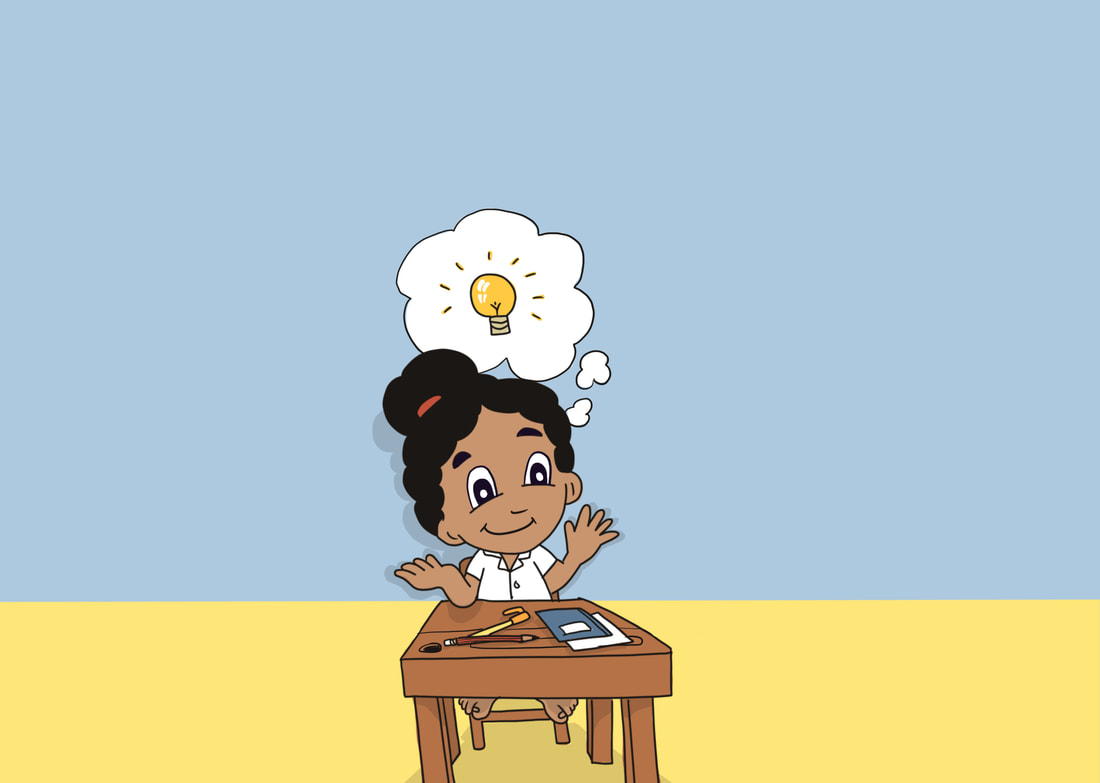Although English is Fiji’s official language due to the country’s colonial past, the two main ethnic groups in Fiji speak their own languages and Fiji struggles to incorporate these into the country’s education system. Literacy rates have also been on the decline in recent years. One goal of this project is to reverse this trend.
Developed during a BookLab held in Fiji, six writers and four illustrators collaborated to write and illustrate the 10 new storybooks geared toward six to nine-year-olds. The authors gave thought to their prospective readers: how to make a child laugh, what words to use and how to use them, and the importance of illustrations.
The books encourage the children to act on climate change and to be curious about marine life and environments.
The main characters in the books range from a disposable mask (in reference to COVID times) and its adventures in the ocean, illustrating how trash travels; to a young boy encouraging his grandfather to move to a new house to escape sea-level rise, in a story called Sea Change.
Sea Change is writer Jo Vasailagi’s personal tribute to her late father-in-law. Her young son inspired Maku, the main character in Sea Change, and the grandfather, Tutu is drawn from her father-in-law. One of the things the author most vividly recalls about her father-in-law, she said, was his big hands. “Maku reached out and gently took Tutu’s big hand,” reads the tale.
Another story, The Great Council of Fish, explores upwelling in the sea and the consequences of warm ocean currents. The title will resonate with Fijian readers and readers Pacific-wide who are familiar with traditional leadership bodies. In the story, the Great Council of Fish convenes to discuss the problem of food shortage in the ocean.
Ropate Kama, a wedding photographer, served as the project’s art director. He says, “Illustrating children’s books that are “Fiji specific” has been a lifelong dream of mine, so when I was asked by the Foundation if I would be interested in illustrating four books and taking on the role of art director, I was all in from the start. So far, it has met all my expectations and more.”
One of the writers, Susie Elliott, who grew up in Fiji but lived in New Zealand for many years before deciding to return home, reflected, “I took up the challenge to write because I love picture books and because there is an awful need in our country to fill this niche in our literature. But most importantly for myself, I want to write for the child in me, who came from this place, but whose early reading experiences in 1960s Fiji were books that spoke about a world in which I was nowhere present. In writing for the child in me, I hope to reflect something about self and place and a particular worldview.”
 Superhero Day front cover. Credit: Asia Foundation
Superhero Day front cover. Credit: Asia Foundation
The Asia Foundation is interested in stimulating children’s literacy ecosystem to encourage children’s reading, engage publishers by providing licenses to sell specific books, and give creatives a platform where they have not had that opportunity before. By writing relatable characters, themes, and settings that reflect and affirm children’s lives in the Pacific, where many kids can’t see themselves in the books they are reading, they hope more Fijian children will experience the joy of reading.
“The new books both celebrate this oceanic world and warn of the threat posed by severe climate events, like powerful storms and flooding which Fijians are increasingly familiar with,” says Milika Sobey the Asia Foundation’s programme manager in the Pacific.
“To see their own lives reflected in these books and to read them in their mother tongues is part of being culturally visible in a world where people from small island states often feel invisible. All of us in the BookLab hope that these 10 original stories, in the three main languages of Fiji, will awaken a passion for reading in primary school children and perhaps give birth to a new generation of writers and illustrators who will tell their nation’s tales.”
The books were printed and launched in July and distributed to the 700-odd primary schools and libraries in Fiji. The Oceans and Climate Action book collection is also available to download and print.
More recently, The Asia Foundation has finished a second book creation exercise, focused on human rights and people with disabilities. These five books normalize the representation of children of varying abilities and emphasize their capabilities. Written with guidance from people with disabilities, the books will also be translated into Pacific languages and published in Fiji.
All these are part of The Asia Foundation’s Let’s Read initiative which helps children of all backgrounds develop the reading and critical thinking skills needed to reach their full potential, setting them up for better employment opportunities in a rapidly changing economy and preparing them to play a positive role in their communities and countries. Let’s Read encourages families to embrace reading with impactful, community-based reading opportunities and thousands of free, high-quality storybooks, available on their Let’s Read digital library at www.letsreadasia.org.
Contact [email protected] for more publishing and printing information.




 RSS Feed
RSS Feed